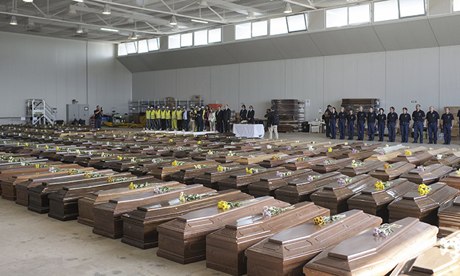Click on image to enlarge
© 2013 This image and the accompanying factsheet are copyright Arche Noah Verein. All rights reserved. Reproduced here with permission.
Artwork by: Valerio Fravallo
Click on image to enlarge
© 2013 This image and the accompanying factsheet are copyright Arche Noah Verein. All rights reserved. Reproduced here with permission.
Artwork by: Valerio Fravallo
Read the Vienna Declaration, currently signed by the following organizations, with more signatures expected to come:
AGROLINK Association (BUL)
Arche Noah Verein (A)
Bese Természetvédelmi Egyesület | Bese Nature Conservation Society (HU)
Bifurcated Carrots (NL)
Campaign for Seed-Sovereignty (INT) | Kampagne für Saatgut-Souveränität
Dachverband Kulturpflanzen- und Nutztiervielfalt e.V. (INT)
Le Début des Haricots (B)
Eco Ruralis – in support of traditional and organic farming (RO)
EKOTREND Slovakia
Environmental Social Science Research Group (HU)
Fundacja Rolniczej Różnorodności Biologicznej AgriNatura (PL)
Föreningen Sesam (SV)
GAIA – Grupo de Acção e Intervenção Ambiental (PT)
Garden Organic (GB)
GLOBAL 2000 – Friends of the Earth Austria
InfOMG – GMO information centre in Romania (RO)
Longo mai (INT)
Maatiainen ry (SF)
Navdanya International (I)
Peliti (GR)
Plataforma Transgénicos Fora (Stop GMO Platform, PT)
Praktisk Økologi (DK)
Red Andaluza de Semillas „Cultivando Biodiversidad“ (E)
Red de Semillas „Resembrando e Intercambiando“ (E)
Rete Semi Rurali (I)
Réseau Semences Paysannes (F)
Seed Freedom Campaign (IND)
Slovensko bez GMO (SK)
Społeczny Instytut Ekologiczny (PL)
Stowarzyszenie dla dawnych odmian i ras (PL)
Utopia (SK)
Varuhi semen (SL)
Verein zur Erhaltung der Nutzpflanzenvielfalt e.V. (D)
ZMAG – Zelena mreza aktivistickih grupa (HR) | GNAG – Green network of activist groups
Dr. Ivan Buddenhagen just sent me the 4 bulbs of garlic and the 121 seeds you see in the picture above. I’m really excited about this. He’s been working for years developing garlic varieties that produce real seed — without human intervention!
Collecting real seeds from garlic plants has always been theoretically possible, but a lot of work. It’s always been a lot more practical to just grow garlic from cloves, with the resulting plant being a genetic clone of it’s parent. In fact, this is how we’ve been growing garlic for centuries, meaning the plants have more or less ‘forgotten’, through evolution, how to produce seeds. Dr. Buddenhagen has succeeded in bringing back this trait, meaning it’s now possible and practical to breed new garlic varieties. In the picture above, you see 4 of his new varieties.
In my case, here in western Europe, garlic rust is a serious problem. Together with others, I’ve been looking for years for a resistant variety. This sheds a whole new light on this search effort. Now, hopefully, I can work with a population of garlic plants exchanging DNA and reproducing sexually. I understand these plants need a long season to develop seeds, and of course the rust may still kill my plants before I have a chance to gather seed, but now there’s hope…
One of the key aspects of the pending seed legislation are provisions for import and export of plant material. Anyone who has worked with moving plant material across national borders will tell you this is a very political process. For example, trying to get any plant material into the US during the Bush years was next to impossible, but under Obama it’s not usually a problem. Are risks of diseases or invasive species less now? Of course not, it’s just a different political climate.
The timing of the proposed EU seed law and the trade talks between the US and Europe is no coincidence. Agriculture has been identified as one of the most important elements of the trade talks, and there are provisions in both proposals that go along together. Basically what’s being promoted is the idea of complying with the laws of the destination country. This sounds very innocent, and almost logical. For example, GMOs are highly regulated in Europe, so the US would have to comply with the law in Europe when exporting GMOs there. Most people wouldn’t have a lot of problems with this. But there’s a very sinister side to this!
The proposed new seed regulation would place a heavy administrative burden on those wishing to sell seeds, in any quantity. This burden is carefully calculated to be too great for the small seed companies or farmers, but a trivial exercise for the larger companies. Since all seeds sold in Europe would have this administrative burden, by law, countries wishing to export seeds or other agricultural products to Europe would have to prove they have an equivalent administrative system in place. With this administrative system in place for exporting companies, it’s likely this system would be applied to everyone, in order to create a ‘level playing field’. It’s through this mechanism that Europe intends to use it’s trade agreements to export it’s seed laws, disrupting local seed markets and putting small farmers out of business, all over the world.
This idea is not new. Europe already has very strict regulations for the import of agricultural products, effectively exporting the current seed law, together with destruction of small farming businesses and poverty, all around the world. Europe currently accounts for 60% of the world’s seed exports, effectively forcing farmers in other countries to use these seeds for products destined for European markets. Is it a coincidence that so many of the world’s hungry and undernourished people work in the food industry themselves?
Other Consequences

So what are the other consequences of exporting hunger and poverty around the world?
It’s getting to be a seemly daily occurrence. Asylum seekers from Africa arriving by boat on the shores of Europe. Sometimes they make it, and sometimes they aren’t so lucky.
Is there something the MEPs and other European politicians are missing as they tell us all in parliamentary debates that there’s no problem with enacting legislation to promote the export of seeds, because this is important to Europe’s economy?
On the Peliti website you can find information you need in order to register.